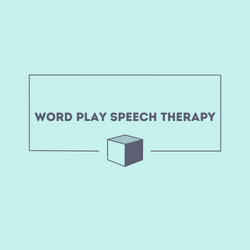5 Places to Play in St. Charles County That Boost Your Child’s Vocabulary
Did you know that everyday play can be one of the best ways to build your child’s vocabulary? St. Charles County is full of family-friendly spots that not only encourage fun and adventure but also create natural opportunities for language growth. Whether your child is a toddler learning their first words or an older child expanding their descriptive vocabulary, these five local favorites provide the perfect setting to support their communication skills.
1. Enchanted Playroom
At this indoor play recreation center, children can explore themed play areas such as a grocery store, barber shop, and doctor’s office. Pretend play allows your child to experience unique vocabulary related to experiences that might not happen in their day-to-day life.
Language Strategies for Families:
-
Role play together. Take turns being the “customer” and the “cashier” at the grocery store. Model phrases like, “I need three apples, please.”
-
Introduce new words. While playing doctor, add terms like “stethoscope,” “check-up,” or “temperature.”
-
Expand their ideas. If your child says, “Cookie,” you could reply, “Yummy chocolate chip cookie! Let’s buy it from the bakery.”
2. O’Day Park
This park in O’Fallon offers a nature-themed playground, trails, and wide-open spaces for exploring. Outdoor play provides endless chances for describing, comparing, and asking questions.
Language Strategies for Families:
-
Use descriptive words. Point out features of nature: “That rock is smooth. This one feels bumpy.” Labeling concept words helps our children with following directions and communicating their needs.
-
Practice categories. Look for items around the park on a walk. For example, “let’s find three things that fly” (birds, butterflies, airplanes) or "I wonder if we can find 3 things that are orange." Teaching words in categories helps our children "organize" vocabulary in their brains for easier retrieval later on.
-
Encourage problem-solving language. At the playground, ask, “How will you get to the top of the climbing net?” Practicing answering questions like this helps children with their storytelling skills.
3. St. Charles County Libraries
With story times, craft activities, and shelves full of books, the library is a vocabulary goldmine.
Language Strategies for Families:
-
Complete the scavenger hunt. Many of St. Charles County Libraries offer scavenger hunts in the children's section of the library. Talk about where you found the items using prepositions like "under the arch" or "on the top shelf."
-
Talk about the story. When you’re reading a book, ask open-ended questions for our later language learners like: “Why do you think the character felt sad?” or "what would you do if this happened to you?"
-
Participate in library programming. Library programming is free and there is something for all ages! From building Legos to toddler time to painting, these activities offer opportunities to practice following directions, communicating with peers and more.
4. Big Joel’s Safari
This petting zoo is the perfect place to introduce animal names, action words, and descriptive vocabulary.
Language Strategies for Families:
-
Name and describe animals. Go beyond lableing “goat” and expand on your child's knowledge of the world, “This is a baby goat, also called a kid. It has short horns.”
-
Use action words. Point out what animals are doing: “The kangaroo is hopping,” “The turtle is crawling slowly.” Verbs pack a lot of punch when it comes to vocabulary, and we can't make sentences with only nouns!
-
Make comparisons. Ask, “Which animal is bigger, the llama or the rabbit?” Labeling comparison vocabulary helps children understand relationships between objects, people and ideas.
5. Renaud Center Pool
Swimming is not just great for gross motor skills—it can also be a fun place to practice language. Plus evidence tells us, motor movements actually improve language production! And just because summer is over doesn’t mean pool time is done!
Language Strategies for Families:
-
Practice sequencing. Narrate the steps while you're at the pool: “First we put on our goggles, then we splash in the water.” Practicing "first, then" in play helps your child with following directions in other situations.
-
Follow directions with spatial words. Play games with “under the water,” “over the noodle,” "put it on the bottom,” and “swim between mom and dad.”
-
Play people games. People games, like picking up a child and throwing them in the water, encourages connection. Create a routine in your play and then pause throughout to see if your child will request the next step. If they don't model what words they would use if they could say them.
Final Thoughts
Each of these St. Charles County spots provides more than just play—they offer opportunities to connect, explore, and grow your child’s vocabulary in meaningful ways. By turning everyday outings into moments of language learning, you’re helping your child build the foundation for strong communication skills while making memories together.

